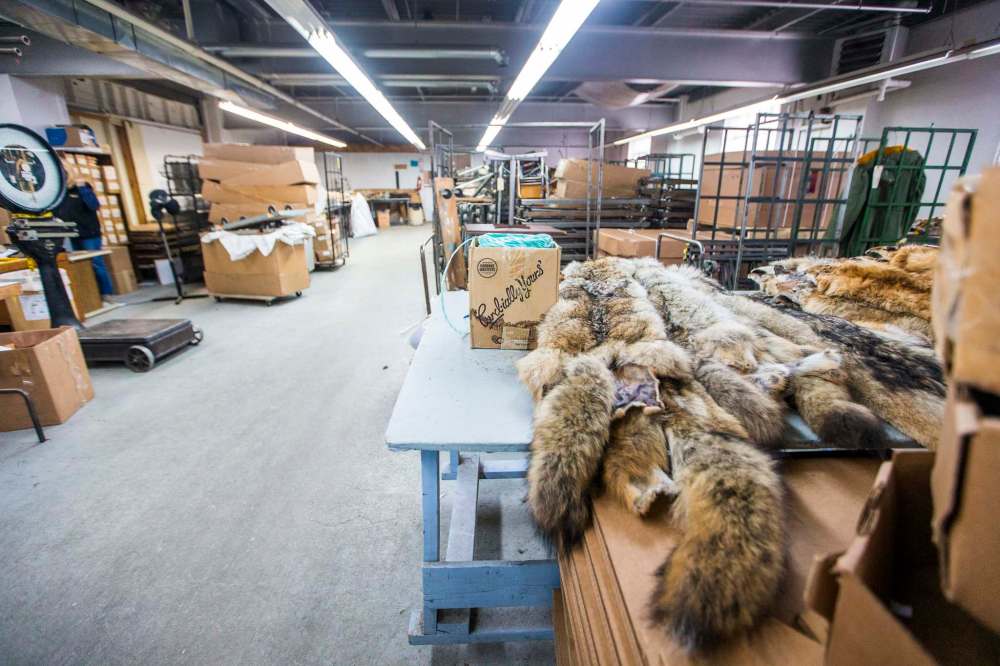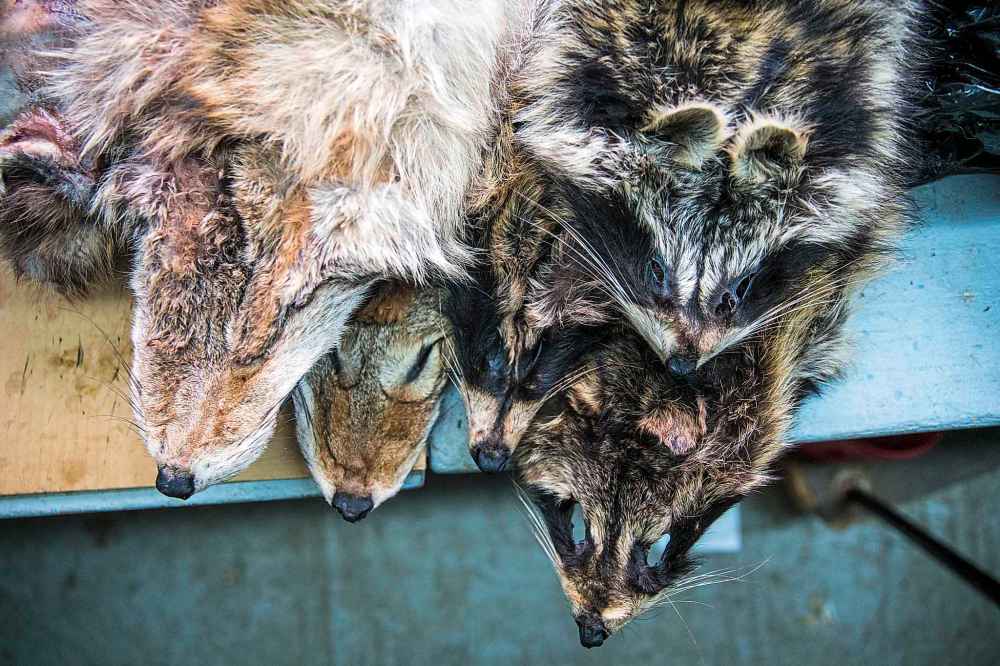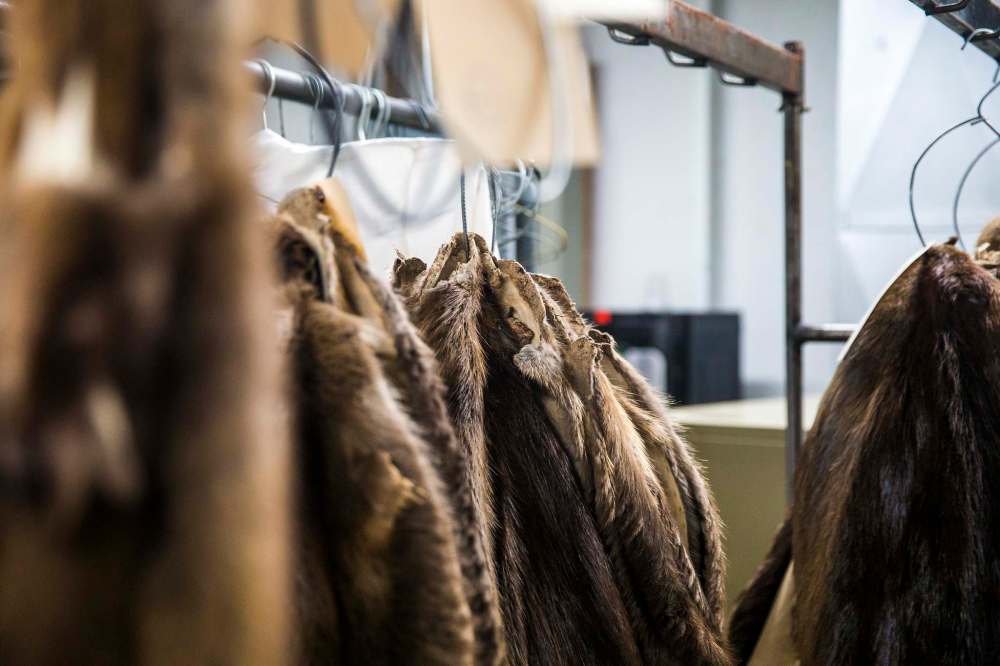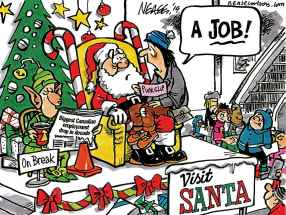Fur no longer flying Manitoba trappers caught off-guard by collapse of nation's largest fur auction house
Read this article for free:
or
Already have an account? Log in here »
To continue reading, please subscribe:
Monthly Digital Subscription
$0 for the first 4 weeks*
- Enjoy unlimited reading on winnipegfreepress.com
- Read the E-Edition, our digital replica newspaper
- Access News Break, our award-winning app
- Play interactive puzzles
*No charge for 4 weeks then price increases to the regular rate of $19.00 plus GST every four weeks. Offer available to new and qualified returning subscribers only. Cancel any time.
Monthly Digital Subscription
$4.75/week*
- Enjoy unlimited reading on winnipegfreepress.com
- Read the E-Edition, our digital replica newspaper
- Access News Break, our award-winning app
- Play interactive puzzles
*Billed as $19 plus GST every four weeks. Cancel any time.
To continue reading, please subscribe:
Add Free Press access to your Brandon Sun subscription for only an additional
$1 for the first 4 weeks*
*Your next subscription payment will increase by $1.00 and you will be charged $16.99 plus GST for four weeks. After four weeks, your payment will increase to $23.99 plus GST every four weeks.
Read unlimited articles for free today:
or
Already have an account? Log in here »
Hey there, time traveller!
This article was published 11/12/2019 (2195 days ago), so information in it may no longer be current.
Manitoba trappers are grappling with an overhaul of the wild fur industry after the continent’s largest auction house filed for creditor protection, leaving local hunters in limbo as they wait for money owed for their pelts.
Toronto-based North American Fur Auctions (NAFA), which had a location in Winnipeg until earlier this month, is one of two wild fur auction houses in the country. The auction is the world’s oldest, with ties to the Hudson’s Bay Co.
For decades, trappers have dropped off their furs with the auction and turned profits from buyers interested in everything from mink to beaver — but NAFA’s future in fur consignment has been uncertain for months.
On Oct. 31, it sought and was granted creditor protection, a decision the company said was “tremendously difficult” in a news release published on its website.

Fur buyer Dave Vandermeer said the news sent some Manitoba trappers “into a tailspin” since they are searching for other venues to sell their product, while some are at a loss because NAFA still has their pelts or pelt profits.
“There’s a lot of people that are upset about it, mainly upset about the fact that when the NAFA did what they did, the cheques from the last auction all bounced,” Vandermeer said recently, reached by phone in the bush in Duck Mountain Provincial Park.
Northern Stores no longer buying trappers' pelts

Posted:
Northern trappers are reeling after learning they will no longer be able to sell their furs for instant cash at remote grocery and general stores.
Vandermeer, who is based in Grandview, has been trapping since he was 13. He also buys fur off other trappers for resale. A former Ontarian, he has always sold his furs through the country’s second, much smaller auction, Fur Harvesters Auction (FHA) in North Bay, Ont.
If NAFA goes out of commission, trappers would have to either sell to independent buyers like Vandermeer, attend the annual Thompson Fur Table or go through the FHA. The co-operative will essentially have a monopoly until another auction inches in.
As of Dec. 1, the FHA took over NAFA’s Winnipeg business at 567 Henry Ave., its chief executive officer Mark Downey told the Free Press.
“They’re no longer in the wild fur business,” Downey said. “We took over their facility in Winnipeg in an effort to better service the trappers of Western Canada.”
Winnipeg will be the central hub for the West, where area trappers’ fur can be consigned and ticketed before it’s shipped to North Bay.
NAFA has said, in the immediate future, it plans to sell its ranched mink loan portfolio and get rid of or return all of its remaining furs. It added it’s “unlikely” the upcoming March 2020 auction will take place. Industry experts told the Free Press it’s all but certain it will shutter.

Rob Andrushuk, president of the Manitoba Trappers Association, said local members aren’t too worried about the future of the industry, as FHA has moved into Winnipeg and they expect other buyers to join the market.
As for NAFA’s future, Deloitte Restructuring Inc. is expected to initiate a mailer to company creditors. Meanwhile, the auction said it cannot make payments outstanding to creditors prior to Oct. 31. Depending on the outcome of its restructuring, a claims process might take place to deal with them, but no timeline has been set.
“Trappers are upset with the fact they’re proceeds of their hard work in the bush hasn’t materialized and they’re worried if it’s going to happen,” Downey said. “I would hope that once this thing gets worked out with the creditor protection and assets get sold off… something goes back to trappers.”

The fur trade contributes an estimated $1 billion to the Canadian economy every year. There are approximately 50,000 active trappers in the country, according to the Fur Institute of Canada. About half of the active trappers are Indigenous.
Downey said the FHA expects to receive more fur than usual this year, since it’ll be the only active auction. Although fur sales are lower than an industry peak in 2013, he said there’s a high demand for fur that can be used as trim on winter coats.
Overseas competition and the weather in markets (cold winters abroad mean demand for fur coats increases) continue to create see-saw fur prices, which have not only put NAFA’s future in question — but also recently led the North West Company to halt its in-store fur-buying program in northern Manitoba stores. The industry has also taken a hit due to a rise in animal activism.
NAFA did not respond to multiple requests for comment.
maggie.macintosh@freepress.mb.ca
Twitter: @macintoshmaggie

Maggie Macintosh reports on education for the Winnipeg Free Press. Funding for the Free Press education reporter comes from the Government of Canada through the Local Journalism Initiative.
Our newsroom depends on a growing audience of readers to power our journalism. If you are not a paid reader, please consider becoming a subscriber.
Our newsroom depends on its audience of readers to power our journalism. Thank you for your support.









